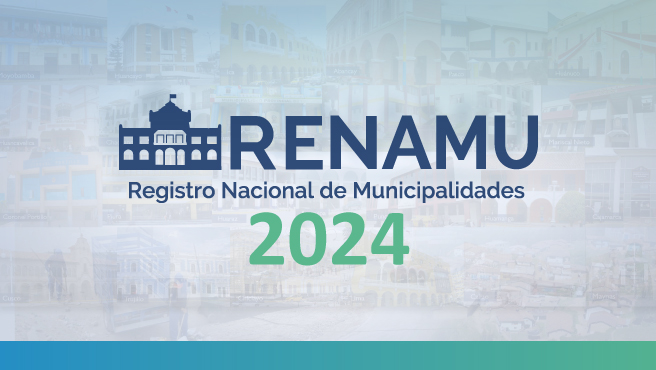More than 39 thousand 591 Serenazgo forces offer citizen security services in the districts
Nota de prensa
14 de January de 2025 - 4:11 p. m.
The National Institute of Statistics and Informatics (INEI) informed that the 2024 National Registration of Municipalities, collected information from 196 provincial municipalities, 1 thousand 695 district municipalities and 2 thousand 954 municipalities of populated centers of the country, in order to generate indicators of municipal management that support the planning and decision-making for the regional and local development.
According to the results of provincial and district municipalities of the country, as of March 31st of 2024, it was stated that 65.8% (1 thousand 244) municipalities offered the Serenazgo service (citizens security), with 39 thousand 591 Serenazgo forces. From this total, 20.8% (8 thousand 237) are women and 79.2% (31 thousand 354) are men.
53 out of 100 municipalities have constituted the Operation Center of Local Emergency
In the year 2024, 53.2% (1 thousand 6) of provincial and district municipalities have constituted the Operation Center of Local Emergency (COEL). And of which, 48.2% (485) stated that the COEL is contemplated within the organic structure of the municipality; meanwhile that the 51.8% (521) stated that the COEL is not inside the organic structure.
Nine out of 10 municipalities have a Unit of Disaster Risk Management or Office of Civil Defense
During 2023, 91.4% (1 thousand 729) of municipalities informed that they have a Unit of Disaster Risk Management or Office of Civil Defense. From this total, 92.7% (1 thousand 603) have media, such as mobile telephone lines (1 thousand 208) and access to the Internet (1 thousand 313), among the main ones.
At national level, 74 out of 100 municipalities offer the service of Municipal Defenders of the Girl, Boy and Adolescent
74.9% (1 thousand 416) of municipalities stated that during the year 2023 attended a total of 328 thousand 873 cases in municipal defenders. The most frequent cases were related with legal consultancy service (24.5%), followed by foods (18.2%), psychological care services (16.2%), visiting arrangements (11.0%) and custody of daughters or sons (10.7%), among others.
Municipalities granted more than 90 thousand operating licenses for business establishments
During the year 2023, 50.6% (956) of municipalities, granted a total of 90 thousand 425 operating licenses for establishments within their jurisdiction. From the total of licenses, the greater amount was destined to the services 51.5% (46 thousand 613) and commerce 44.5% (40 thousand 212) sectors. In addition, there were granted 3 thousand 243 licenses for craftsmanship and manufacturing establishments, as well as 357 for livestock activities.
99 out of 100 municipalities offer the collection service of solid waste
During the year 2023, 98.8% (1 thousand 869) of municipalities performed the collection service of solid waste reaching a daily average of 25 thousand 17 tons of solid waste; which is equivalent to 0.7Kg. per inhabitant.
From the total of municipalities that offer this service, 80.5% (1 thousand 505) deposit all or part of the collected solid waste into the garbage dump, 35.5% (664) destined to recycle, 32.2% (601) destined to composting, 20.8% (388) destined to the landfill and 7.5% (141) destined to be burned or incinerated, among the most frequent final destinations.
Nine out of 10 municipalities have Internet service
During the year 2024, 97.4% (1 thousand 842) of municipalities have the Internet service and 96.1% (100 thousand 763) of computers have this service, registering an average of 55 computers per municipality with access to the Internet.
53 out of 100 municipalities use virtual reception desk as citizen attention channel
During the year 2024, 99.5% (1 thousand 882) of municipalities offer personal attention to the citizen over the counter and/or through reception desk, 78.0% (1 thousand 475) by e-mail and 53.0% (1 thousand 3) by virtual reception desk, among the main ones. This last service has acquired greater relevance after pandemic caused by COVID-19, driven virtuality in municipal management.